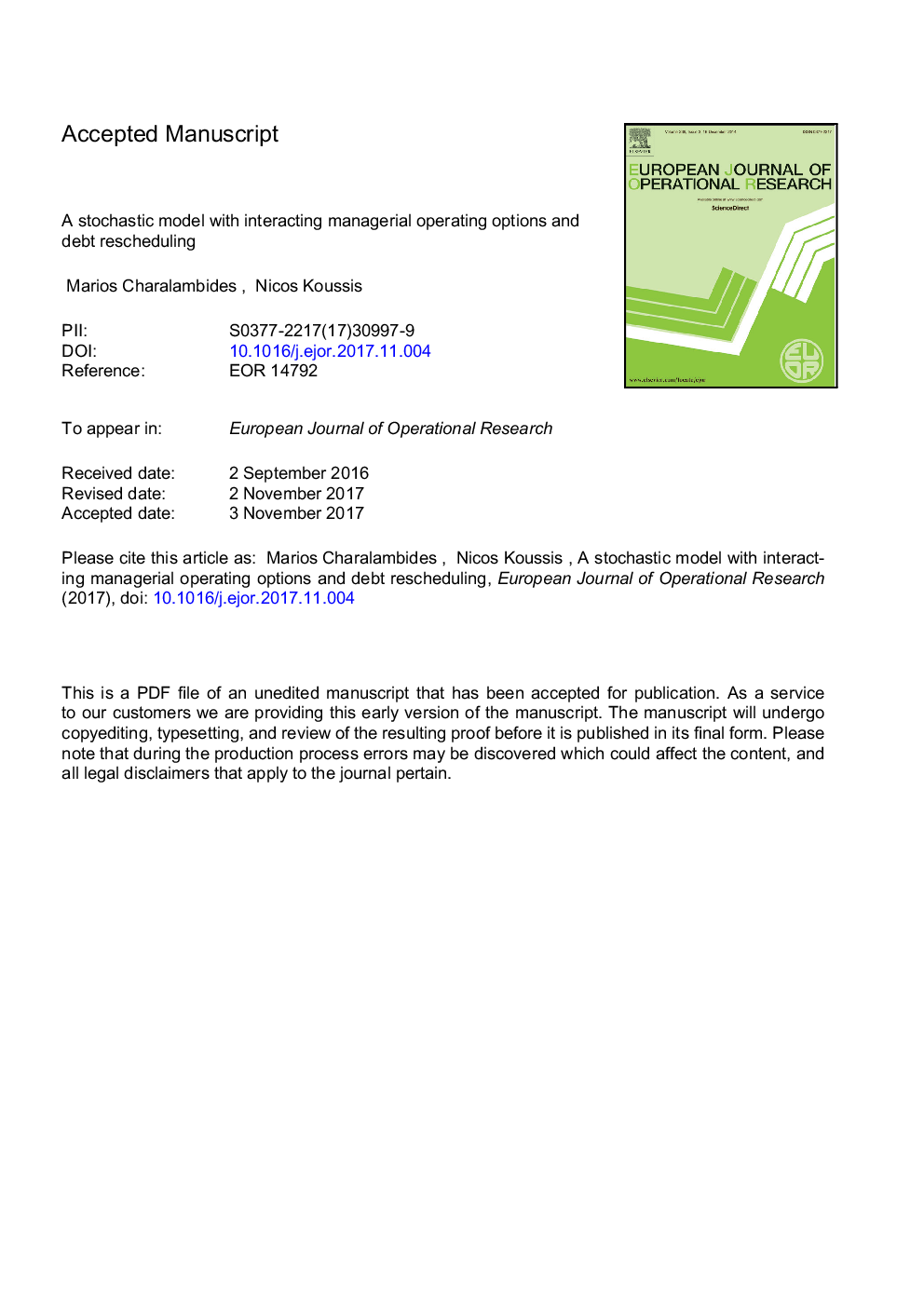| Article ID | Journal | Published Year | Pages | File Type |
|---|---|---|---|---|
| 6895065 | European Journal of Operational Research | 2018 | 42 Pages |
Abstract
We develop a stochastic continuous time trade-off model with optimal capital structure that incorporates management's selection of optimal investment timing and switching between full-scale operations, reorganization and rescheduling and termination of operations (liquidation). We show that the presence of a firm's option for debt rescheduling reduces firm value by reducing the management's ability to raise debt. This negative impact on debt capacity is reduced in the presence of higher switching costs incurred by shareholders when seeking bankruptcy protection and debt rescheduling. Larger anticipated debt reduction in rescheduling results in the management (acting in the shareholders' interests) delaying returning to active full-scale operations which results in larger debt risk and credit spreads. On the positive side, more significant anticipated debt reduction in rescheduling results in reduced agency costs between shareholders and debt holders.
Related Topics
Physical Sciences and Engineering
Computer Science
Computer Science (General)
Authors
Marios Charalambides, Nicos Koussis,
